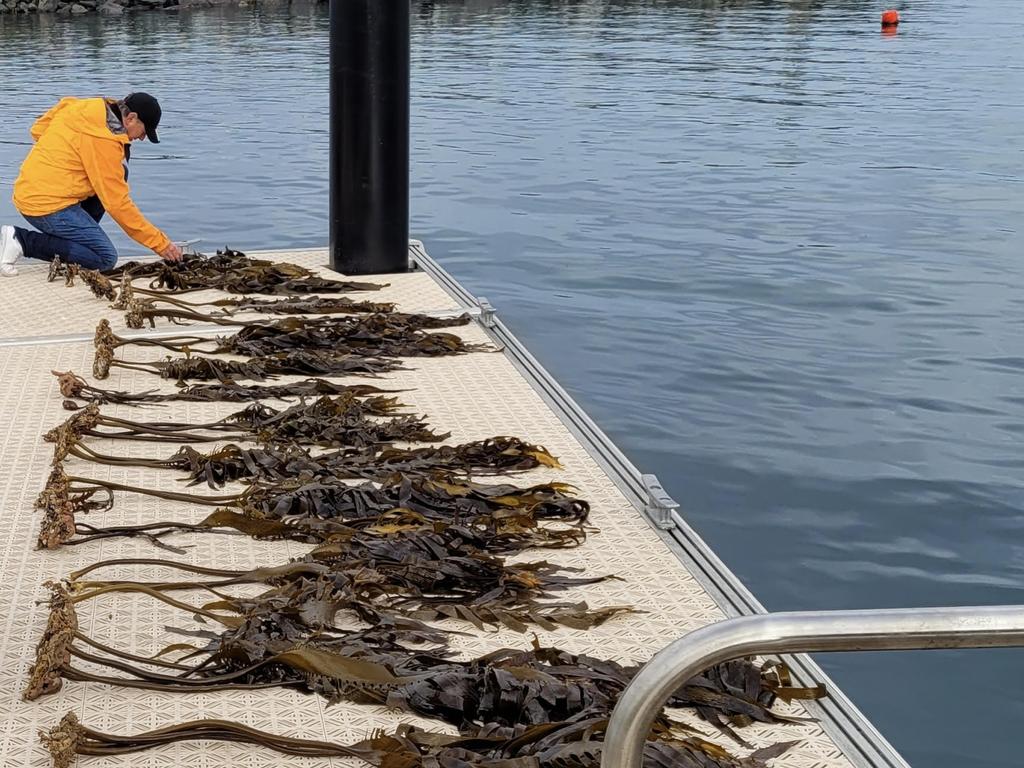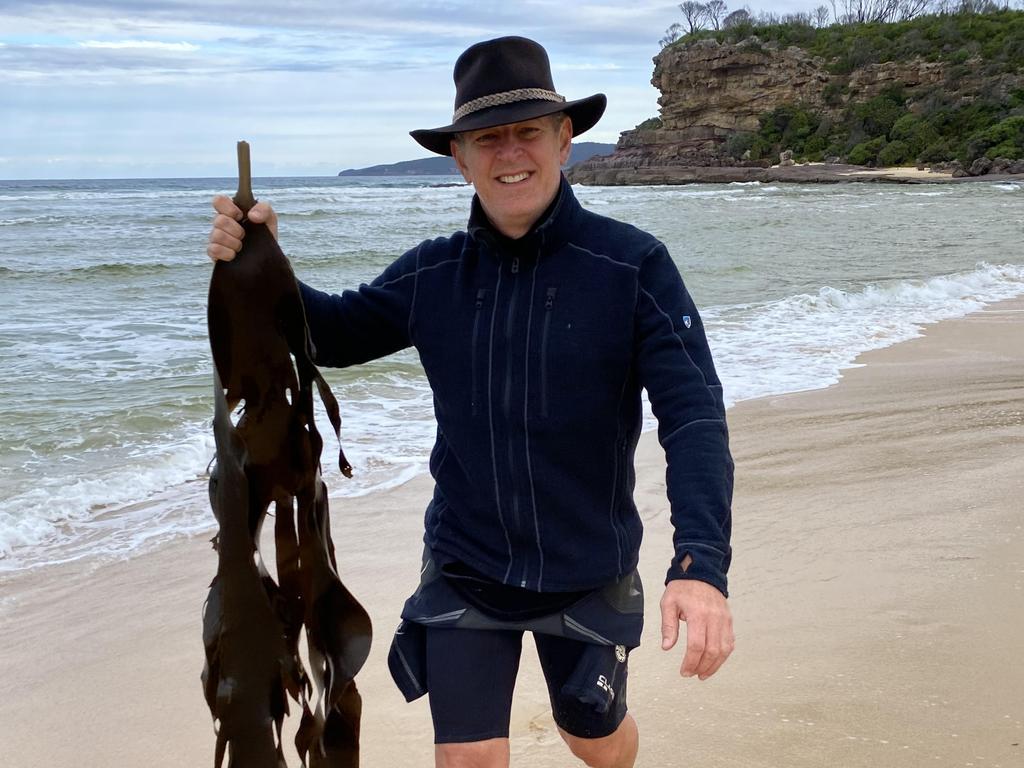‘Smelly, brown’ solution to huge problem facing Great Barrier Reef
Australia is facing a massive challenge to save one of the country’s most popular tourist attractions. Here’s one unusual answer.
A pile of smelly, brown seaweed could be the answer to revitalising the Great Barrier Reef.
Kelp, the fastest growing life form on Earth, can grow up to 50m long at up to 50cm per day in cool, unpolluted, nutrient-rich waters, absorbing the ocean’s toxins while providing a habitat for fish along shorelines.
Large scale farming of the brown microalgae also has the potential to join the ranks of Australia’s biggest industries.
But tight environmental regulations have prevented the industry from flourishing across the Great Southern Coast, where water temperatures are ideal and space is abundant.
Auskelp founder Christopher Ride has been tugging at red tape to get the $8 million project up and running since June 2020.
“We’re exactly two years into approvals and we’ve got at least a year, if not 18 months, to go,” Mr Ride said.
“The very regulations that are there to protect our environment also stop us from moving quickly on new industries like kelp farming.”
In NSW, where Mr Ride and his team of 10 are ready to construct the first large-scale, commercial ocean kelp farm in Australia, there are 88 different policies, guidelines and plans which must be adhered to gain licence approval.
“It currently takes years and millions of dollars just to get the approval to test, let alone move to a commercial scale,” Mr Ride reported.

Mr Ride, who previously ran as the Liberal candidate in the federal seat of Macnamara before standing aside to focus on his business ventures a few months out from the election, said he was hopeful the new Labor government would consider alternative solutions to tackling climate change.
He is calling on both state and federal governments to support testing in locations like Disaster Bay on the southern NSW coast, where kelp called Ecklonia radiata is still abundant.
“What we’re saying is, let’s test it and we’ll share the results with you,” the seaweed expert said.
“If they are serious about climate action, then let’s do the testing.”
Over the past 40 years, increasing water temperatures and reduced upwelling – a process which brings cool, nutrient-rich waters to the surface – have decimated most natural kelp forests in Australia by more than 80 per cent.
“What if 80 per cent of all plants died in Australia, but somebody had a plan. Surely we would say let’s give it a go,” Mr Ride said.
With room to employ up to 60 full-time staff in the Eden area, the site is expected to yield nutrient rich by-products which can be used for pharmaceuticals, cosmetics or food due to its high levels of protein and Omega 3.
Mr Ride also explained the seaweed has been proven to be effective in absorbing large quantities of nitrogen from Great Barrier Reef catchments.
“If you’ve got a kelp barrier between land, farming and the ocean, you actually create a barrier that protects these natural ocean ecosystems,” he said.
“The kelp farms will absorb a huge amount of carbon.”

A reduction in methane may also be on the cards if the industry grows some legs, with studies showing that feeding cattle the nutritious seaweed, particularly red varieties, could also help to significantly reduce methane emissions.
Mr Ride is hopeful his budding business will contribute to the National Seaweed Industry’s ambitious targets.
The industry is hoping to be able to reduce methane emissions from the Australian meat and livestock sector by 30 per cent by 2025 and by a whopping 99 per cent by 2040.
It is also expected to be able to create 9000 jobs and remove 80 per cent of the nitrogen from Great Barrier Reef catchments in the same time period.
While questions were posed to Environment Minister Tanya Plibersek about testing approval for the site, the department responded to queries, saying aquaculture operations were “largely regulated by local and state and territory governments”.




